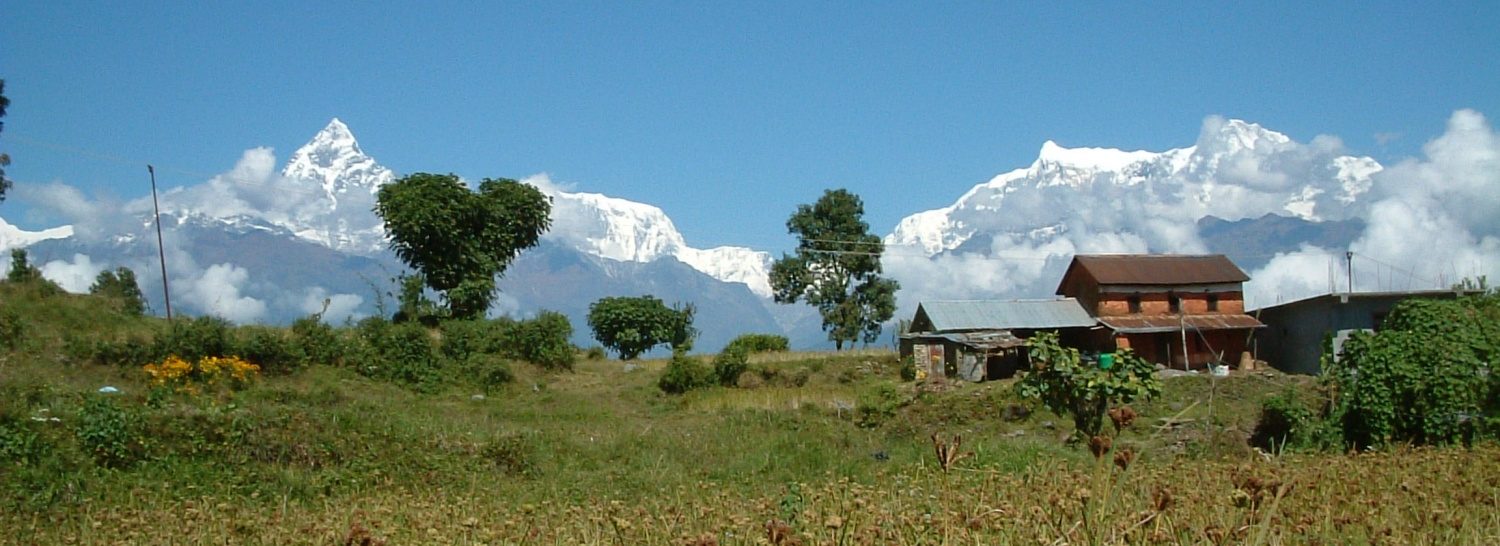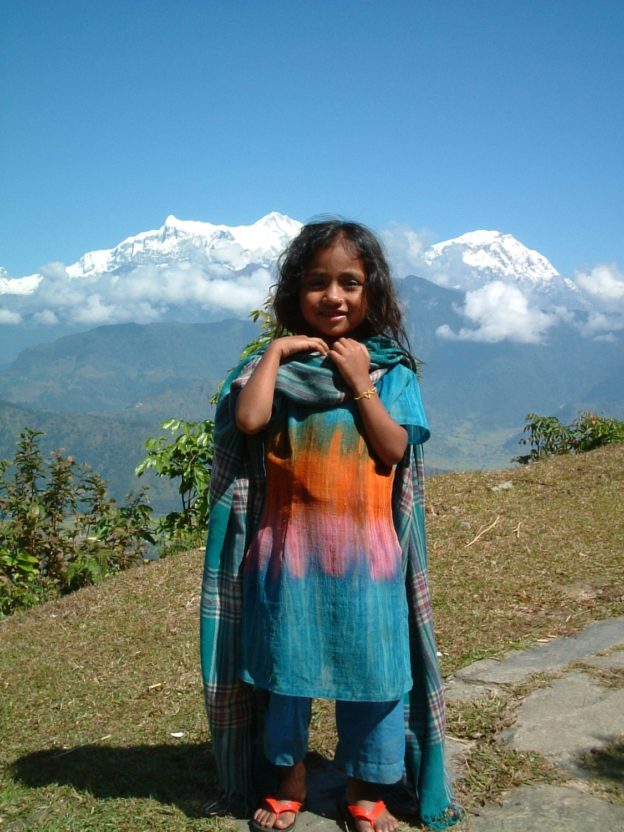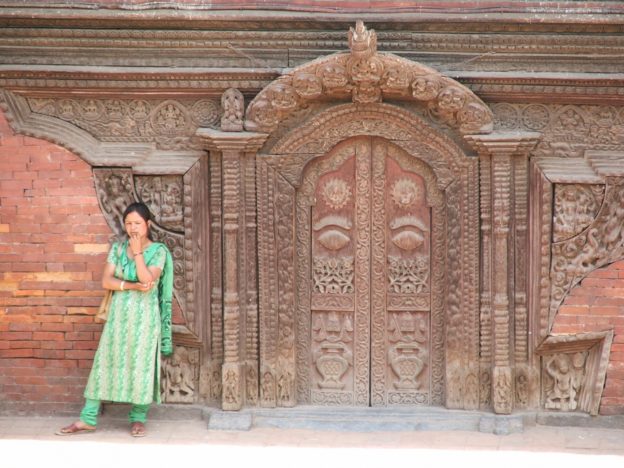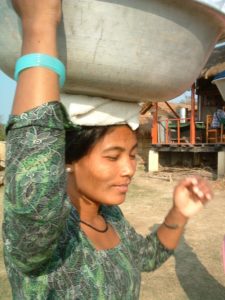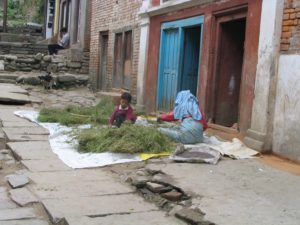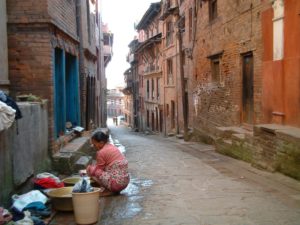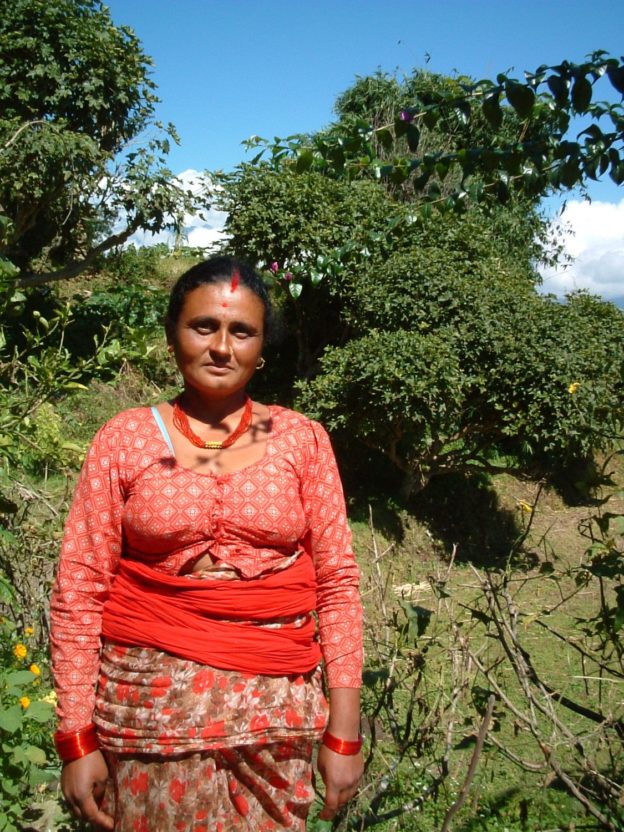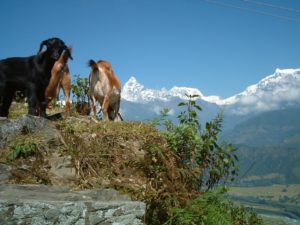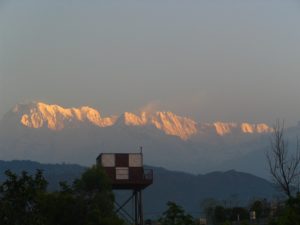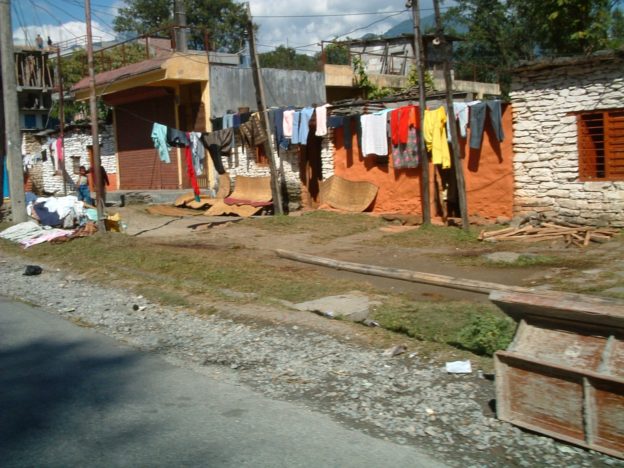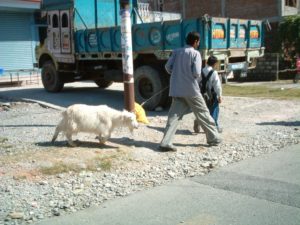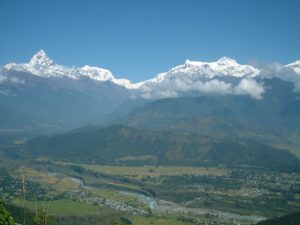A family washing carrots in the river, a young girl licking the blood from a buffalo head during festival, the wrinkled grin of an old man, a woman carrying fodder, the deserted landscape of the high mountains. 205 nepalese photographers have tried to capture the essence of their country in the first national photo competition ever to be held in Nepal. This historical event took place at Nepal Art Council Gallery on the 3rd of December 2004, held under the banner of the Shangri-La inflight magazine and Royal Nepal Airlines. Some of the images were among the finest expressions of art, seducing and hypnotizing the viewer, many of them were snapshots of festivals and nature, but together they formed a fascinating and intriguing picture of the landscape Nepal.
Nepal Kaleidoskope is the first photocompetition of its kind, being held as a national competition including all districts and on a high level. 410 pictures were evaluated by five competent judges. The first price including two return ticets for Bangkok and Rs. 50.000 rupees was won by Rabi Kiran Bajracharaya, who generously donated the money to The Photoclub to honor the seniors of photography in Nepal, for making it easier for people like himself to follow them.
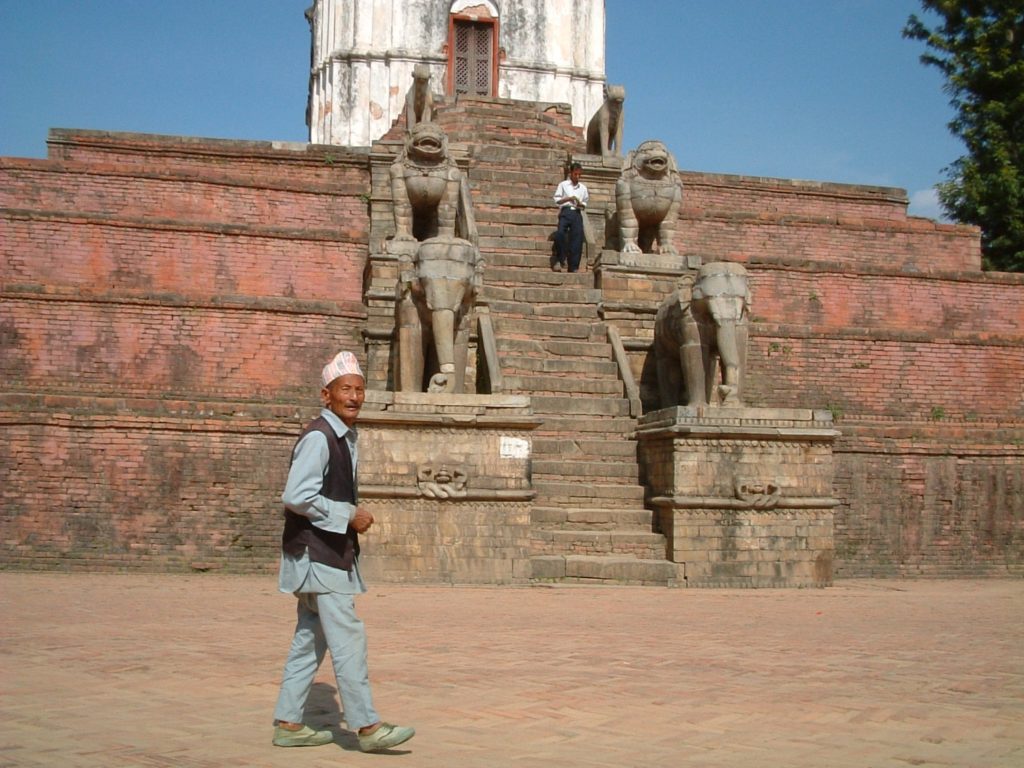
Bajracharaya, who was among 205 photographers taking part in the competition, had sent two pictures for evaluation, one portraying traditional dance, the other one portraying the festival of new years celebration in Kathmandu. The latter won the price for beutifully captering the the dramatical and emotional moment when people gathered around the chariot at Kathmandu Durbar Square to celebrate the coming new year. Bajracharaya who has had his own camera since he was only nine years old, was very happy to receive the price. He says it is the first time for him to win a price like this.
- We chose to put the main emphasis on what really reflects Nepal as a country, said one of the five judges Narayan Wagle, editor of Kantipur Daily, after the event. Kisthor Kayastha won the second price and the third price was won by Dinesh Shrestha. A special award was given to Amrit Bajrachrarya for being the most promising photographer, and a certificate was awarded Kabi Raj Karki from the district of Mugu for the special efforts he had made to join the competition, as the intention of the Nepal Kaleidoskope was to promote and encourage photographing throughout the country, while promoting Nepal as a destination for travelers.
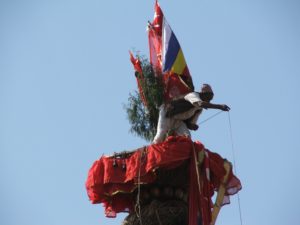
I asked Wagle, whom we met looking content at alle the enlarged photos lined up at the Nepal Art Council Gallery, why they chose Bajracharaya as the winner.
– Bajracharaya has beautyfully captured the moment, the picture is technically brilliant and it is consistent with the focus of the Kaleidoskope, which is to capture the essence of Nepal.
The photographers we talked to who did not receive a price, hope there will be a new chance next year and that the Nepal Kaleidoskope will become an annual event.
Kathmandu, December 2004
Interpreter: Bhupendra Basnet. Pictures: Margunn Grønn and Gard Weibye
